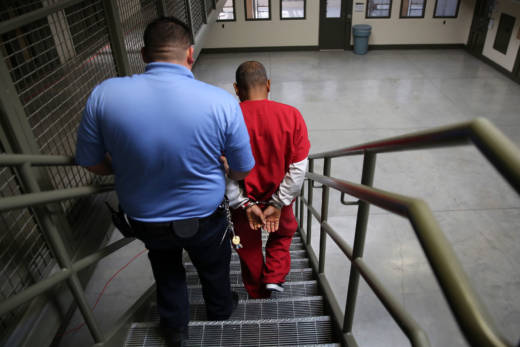Gonzalez said AB 32 could lead ICE to release more immigrants, such as those without serious criminal records — something the agency has the discretion to do.
“My hope would be that there would be fewer people detained to begin with because ICE will recognize that those individuals should not be detained in the first place,” she said.
But David Jennings, who directs ICE’s enforcement and removal operations in Northern California, said AB 32 would force the agency to transfer detainees out of state, sending them farther away from any relatives in California.
“Look, there's a whole bunch of people that by law have to be detained, and so they'll be detained, whether it's here or somewhere else,” said Jennings.
Some legal scholars doubt California has the authority to restrict the way ICE operates detention facilities.
John Eastman, a law professor at Chapman University, said AB 32 would be “blatantly” unconstitutional if enacted.
“What if the federal government decides to house detainees at the Hilton. Is the Hilton now illegal?” said Eastman. “California cannot thwart federal enforcement efforts in areas so clearly within the authority of the federal government as immigration is.”
